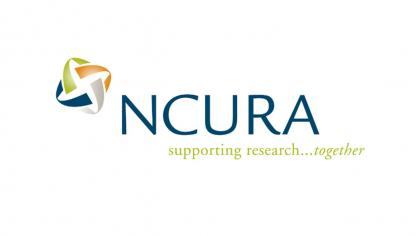In December of 2016, Misha Nehring began the process of interviewing for a position at what is known today as Rutgers University’s Investment Internship Program. One month later, Nehring, then a student pursing a Bachelor of Science in Finance at Rutgers Business School (RBS), became one of the Investment Office’s two inaugural interns.
For the next year, Nehring would work closely with Jason MacDonald, Chief Investment Officer, and the rest of the Investment team. Their introduction was serendipitous and can be credited to Nehring’s mentor, Kevin Cuskley, director of Rutgers’ Road to Wall Street Program, whom Nehring calls “the starting point of the internship.”
“Kevin Cuskley was a very supportive figure in my professional development. After I’d been admitted to the Road to Wall Street Program, he put me in contact with Jason, who had just joined Rutgers a few months prior at that point,” Nehring said.
The subsequent professional development, however, was anything but a matter of chance. From his formal hiring in January 2017 through his graduation from RBS in 2018, Nehring worked alongside the Investment Office team and was involved in a variety of investment operations. As he learned, Nehring was also leaving his mark as one of the Investment Office’s first-generation interns by establishing standard operating procedures for record retention and reporting.
“A lot of it entailed setting up the infrastructure to help facilitate the day to day [management of?/operations?] for the endowment such as joining calls for the investment managers and getting all the updates on what was going on with their portfolios, i.e., what new investments they’d made and what performance looked like for each of the funds,” Nehring explained. “That really gave me a strong grasp on the landscape of the investment industry and how people think about investment opportunities, what investment opportunities are out there, and the differences between types of investments. I wasn't familiar with infrastructure investing or real estate investing, and the endowment was very helpful in that area.”
“The team would sit down with me every single time we put together one of these reports and would walk me through everything they knew about each of the funds. That was unbelievably helpful; honestly, I probably wouldn't be in my current seat without that,” said Nehring, who presently works as an Investment Professional at Permira, a global private equity firm.
Prior to his employment at Permira, Nehring served as a strategic finance senior analyst at Genesys and an investment banking senior analyst at Citi, a full-time engagement offered after his exemplary performance as an intern with Citi during the summer of 2017. The Investment Office’s internship considerably strengthened Nehring’s comprehension of industry dynamics prior to his start at Citi in both capacities—intern and full-time employee.
“When I was participating in Citi’s internship and when I was working full-time, I had a very strong grasp of the thought processes of professionals at investment firms such as hedge funds, direct lending firms, and private equity firms that a lot of other people weren't as familiar with,” he attested.
I’m very proud of our intern program and I don’t think it would be what it is today without Misha getting us off to the good start that he did. He’s an incredibly talented person with an unbelievable work ethic, not too dissimilar from many Rutgers students. He’s been extremely successful in his career thus far and I’m looking forward to seeing him continue to make us and Rutgers proud. Most importantly, he’s a great person who still mentors many current students. We still keep in touch regularly and I’m glad to call him a friend.
—Jason MacDonald
And once his internship with Citi had concluded, Nehring eagerly returned to the Investment Office. “Within one week of finishing my internship at the investment bank, I was back at the endowment in August,” he said.
Looking back on his experience with the Investment Internship Program, which currently includes nine interns across the classes of 2021 to 2023, Nehring attributes much of its value to its breadth.
“I don't think there's an opportunity that I've seen for Rutgers students to get as broad of an exposure to the investment universe. This gives you very unique visibility into the industry where, if you want to be an investment professional in the long-term, you can decide what type of investment professional you want to be after the internship because you get such intimate exposure to all the companies or all the investment firms with which Rutgers partners,” he said. “You can decide your path with a lot more confidence and determining what area of investing they want to go into is one of the largest challenges for people when they enter the industry.”
Although Nehring’s involvement with the Investment Internship Program formally came to a close with a fateful turn of a graduation cap tassle in 2018, importantly, the insight he derived from his experiences with the Investment Office isn’t the only enduring aspect of his time with the program, which has seen a total of five alumni graduate since its foundation in 2017.
“The internship doesn't end with the endowment and the Rutgers connection doesn't end at the end of the internship. The Investment Office team is a phenomenal advocate for the students who go through the program. I probably wouldn't have been given opportunities to interview at certain places if it wasn't for their voucher,” Nehring said.

